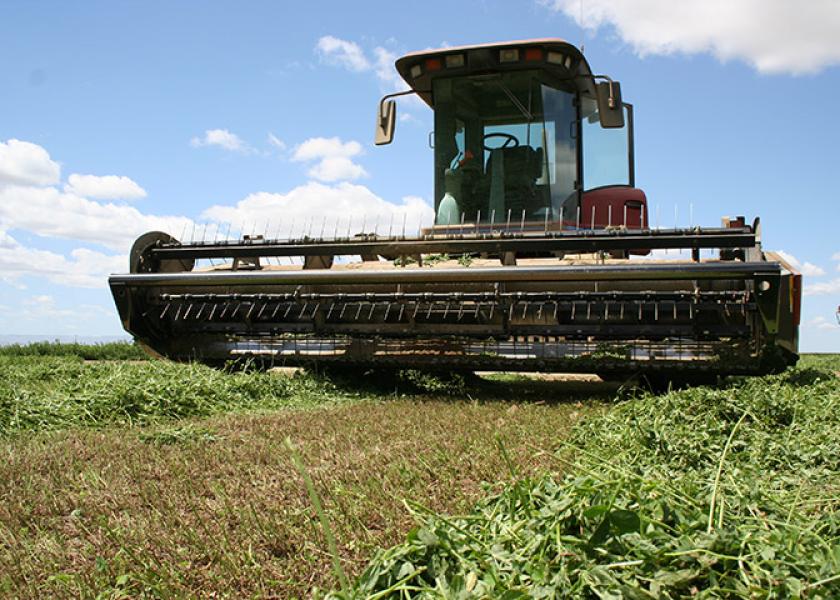Alfalfa Takes A Hit

California’s drought reduces a major dairy feed, sends prices soaring
In Central California – the nation’s No. 1 milkshed -- prices for top alfalfa hay have climbed to record levels of $350 per ton delivered to dairies, says Rick Staas, president and CEO of San Joaquin Valley Hay Growers, a marketing cooperative that counts dairies as its top customer.
"We typically handle 50,000 acres, or about 400,000 tons, of alfalfa hay a year, and we expect to be short by 30% or more this year," he says.
Among Central California dairy herds, 50-60% of feed comes from the forage components of alfalfa hay, corn silage and small grains such as wheat, barley and oats, says Dan Putnam Extension agronomist and forage specialist with the University of California-Davis. Those water-intensive crops are highly affected by the drought.
"Alfalfa acreage is down pretty significantly," Putnam says. "We’ve already seen a drop in the past five or six years to about 930,000 acres from 1.1 million."
This year, less water means most alfalfa growers will get only two cuttings of the crop instead of their typical seven, adds Staas. That means they’ll produce two to three tons of alfalfa hay compared to their normal output of eight to 10 tons. Moreover, there is no alfalfa hay carryover from last year.
In addition, some alfalfa growers will abandon older acreage, "a wise decision in a down year like this," Putnam says.
California’s alfalfa hay growers are also curtailing production as they move their limited water supplies from alfalfa and field crops to orchards and vineyards. "Trees and vines represent a huge capital investment, and growers will protect them," Putnam says. "Some growers are buying water from their neighbors. Where there’s not enough water, farmers will be drying down their crops.
"Alfalfa hay can be under-irrigated and still survive," he adds. "When they stop irrigation in mid-summer, they’ll get some stand loss, but most of the time, the crop survives."
San Joaquin Valley alfalfa growers began their first cuttings in early April. "We’ll see extremely heavy demand for the first two cuttings," says Staas. "Smart guys will buy as much as they can as early as they can because supplies will be extremely tight, and prices will go higher."
Demand for alfalfa hay is not only coming from dairies, which represents 80% of the business for the hay co-op. "The export market is becoming a bigger and bigger market," Staas says. "Dairies and export customers will compete head to head this year."
Most of the state’s dairies have already made significant cuts in the amount of alfalfa hay in their rations. "They can’t feed much less than they’re feeding now," Staas says, "so we’re going to have to reach out to other states to procure enough product for our customers’ needs, which will be expensive."







